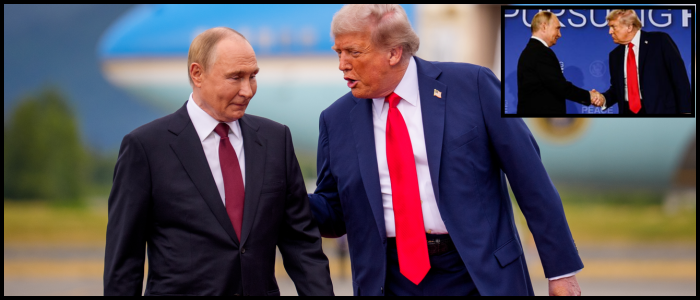European Leaders Show United Front
President Volodymyr Zelensky (pictured) will be in Washington, flanked by figures such as Sir Keir Starmer, President Emmanuel Macron and Chancellor Friedrich Merz. Their joint presence is more than symbolic but strategic to defend Ukraine's interests. Its purpose is to remind Donald Trump that Ukraine's direct involvement is necessary for any peace settlement — and that such an arrangement must be paired with strong, enforceable security guarantees.
European leaders also hope that Trump would acknowledge their collective position and not be swayed by his affinity for Vladimir Putin. The leadership of Sir Keir Starmer is crucial because Trump takes his lead from him, and he is scheduled to visit the UK next month. The NATO secretary general, Mr. Rutte, sometimes called the "Trump Whisperer," will also participate in those talks. Then there is Macron himself, who finds himself in a much trickier situation, especially after the White House came down on him for his proposal to have a Palestinian State recognised next week at the UN General Assembly.
Obstacles to a Peace Deal
Much is unclear on the road to peace. European leaders affirm that international borders should not be changed by force. At the same time, Mr Zelensky has said time and again that Ukraine will not give up land, a vow backed by the country's constitution. But Russia controls about 85 percent of Donbas, and has no plans to hand back Crimea.
The Elder: Kaja Kallas, former Prime Minister of Estonia, now an EU diplomat, once said that Ukraine's victory does not need to focus exclusively on winning back the land it has lost. Should Ukraine get robust Article 5-style assurances to deter additional Russian aggression, however, its sovereignty and independence may be assured. Such a result, many argue, would represent a different but still deeply resonant type of victory for Ukraine.
World

Washington Talks More Crucial Than Trump-Putin Summit

The next one, in Washington, could be more important to the future of Ukraine — and the security of Europe generally — than the one the presidents had last week in Alaska. The previous meeting resulted in the absence of any truce, sanctions or peace deals; this time, negotiations are sent to ensure that Ukraine is not left out to dry on the international stage.















